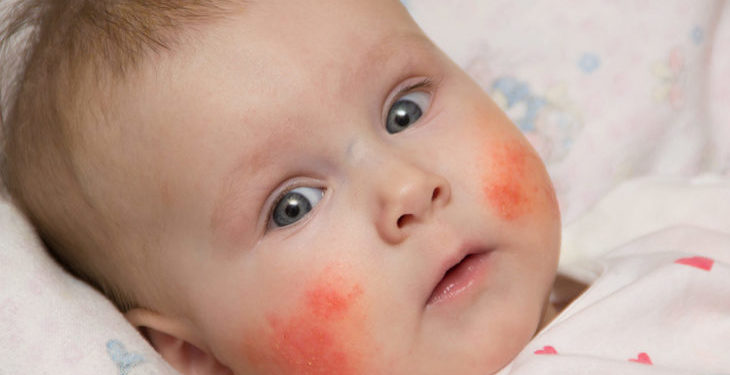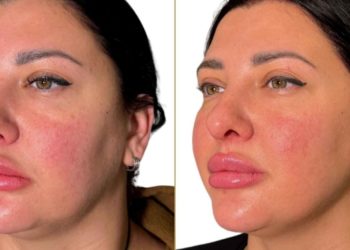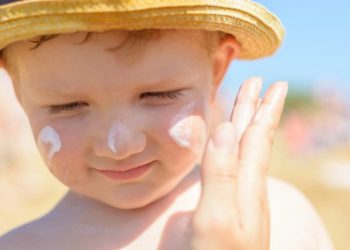Introduction:
Eczema, or atopic dermatitis, is a chronic skin condition affecting many children worldwide. Characterized by itchy, inflamed, and often painful skin, it can be challenging for both the affected child and their parents. Managing eczema requires a multifaceted approach that includes effective skincare routines, appropriate treatment options, and substantial emotional support. This comprehensive guide provides practical advice for parents on navigating these aspects.
Establishing an Effective Skincare Routine:
A consistent skincare routine is crucial in managing eczema and preventing flare-ups. Here are the essential steps:
Daily Moisturizing:
Moisturizing is the cornerstone of eczema care. It helps to maintain the skin barrier and prevent dryness, which can trigger flare-ups. Apply a thick, fragrance-free moisturizer at least twice daily, ideally immediately after bathing when the skin is still damp. Creams and ointments are generally more effective than lotions as they provide a better barrier against moisture loss.
Bathing Practices:
“Proper bathing can help hydrate the skin and remove irritants. Bathe your child in lukewarm water for about 10-15 minutes, using a mild, fragrance-free soap or cleanser. Avoid hot water as it can strip the skin of natural oils. After bathing, gently pat the skin dry with a soft towel, leaving it slightly damp for better moisturizer absorption”. Says, Dr. Shara Cohen, Founder and Director of Cancer Care Parcel
Avoiding Irritants:
“Identifying and avoiding irritants is essential to prevent eczema flare-ups. Dress your child in soft, breathable fabrics like cotton and avoid wool and synthetic fabrics that can irritate the skin. Use hypoallergenic, fragrance-free laundry detergents and rinse clothes thoroughly to remove detergent residues”. Says, Jamie Frew CEO, of Carepatron
Treatment Options:
In addition to a robust skincare routine, various treatment options can help manage eczema more effectively.
Topical Steroids:
“Topical corticosteroids are commonly prescribed to reduce inflammation and control flare-ups. Apply them as directed by your healthcare provider, usually once or twice a day. Use the prescribed amount and avoid overuse to prevent side effects such as skin thinning”. Says, Mary Sabat, MS, RDN, LD, a Nutritionist and Ace Certified Trainer
Topical Calcineurin Inhibitors:
“These non-steroidal medications help reduce inflammation and itching. They are typically used in areas where corticosteroids may not be advisable, such as the face and eyelids. Be aware of potential side effects, including a temporary burning sensation”. Says. Dr. Nikhil Warrier, cardiac electrophysiologist and medical director of electrophysiology at MemorialCare Heart & Vascular Institute at Orange Coast Medical Center in Fountain Valley, CA.
Oral Medications:
“In severe cases, oral medications like antihistamines or corticosteroids may be necessary. Follow the prescription and guidance of your healthcare provider, being mindful of potential side effects and monitoring your child’s response to the medication”. Says Allen Seavert, Director of American TMS Clinics
Phototherapy:
Light therapy can be effective for moderate to severe eczema that doesn’t respond to topical treatments. It involves exposing the skin to controlled amounts of natural sunlight or artificial UV light and should be administered by a healthcare professional to avoid risks associated with UV exposure.
Providing Emotional Support:
Eczema can significantly impact a child’s emotional well-being, leading to issues such as low self-esteem, anxiety, and social isolation. Providing emotional support is as crucial as managing the physical symptoms.
Open Communication:
Encouraging open communication helps children express their feelings and concerns about their condition. Regularly ask your child how they feel about their eczema and listen to their worries. Provide reassurance and emphasize that it’s a common condition that many children manage successfully.
Educate and Empower:
Educating your child about eczema empowers them to actively participate in their care. Teach your child about their skin condition age-appropriately and involve them in their skincare routine, making it a positive and empowering experience.
Support Groups and Counseling:
“Support groups and counseling can provide emotional relief and a sense of community. Look for local or online support groups where your child can connect with others who have similar experiences. Consider professional counseling if your child is experiencing significant emotional distress”. Says, Ted Kyle, RPh, founder of ConscienHealth
School and Social Life:
Eczema can affect a child’s school performance and social interactions. Ensuring your child feels supported and included is essential for their well-being.
Communicate with School Staff:
Inform teachers and school staff about your child’s condition and necessary accommodations. This can include allowing your child to use moisturizer throughout the day or providing a comfortable environment to prevent overheating and sweating.
Encourage Participation in Activities:
Encourage your child to participate in social activities and sports, ensuring they feel included and supported. Talk to coaches and activity leaders about your child’s condition so they can make any necessary adjustments.
Address Bullying or Teasing:
Unfortunately, children with visible skin conditions can sometimes face bullying or teasing. Teach your child how to respond to unkind comments and when to seek help from an adult. Work with school staff to address any bullying issues promptly.
Seek Professional Help:
While many cases of eczema can be managed at home with proper skincare and treatment, it’s important to know when to seek professional help.
Persistent Symptoms:
If your child’s eczema symptoms are not improving with over-the-counter treatments and home care, it’s time to consult a healthcare provider. They can recommend stronger medications or additional treatments.
Signs of Infection:
Eczema-affected skin is more susceptible to bacterial infections. Watch for signs such as increased redness, warmth, swelling, pus, or crusting. If you suspect an infection, seek medical attention promptly as antibiotics may be necessary
Conclusion:
Managing a child’s eczema requires a comprehensive approach that combines effective skincare routines, appropriate treatments, and emotional support. By understanding the condition, implementing practical strategies, and seeking professional help when necessary, parents can significantly improve their child’s quality of life. Each child’s eczema journey is unique, and finding the right combination of treatments may take time. Stay informed, be patient, and maintain open communication with your healthcare provider to navigate this journey successfully. With the right care and support, your child can lead a happy, healthy life despite the challenges of eczema.













































































